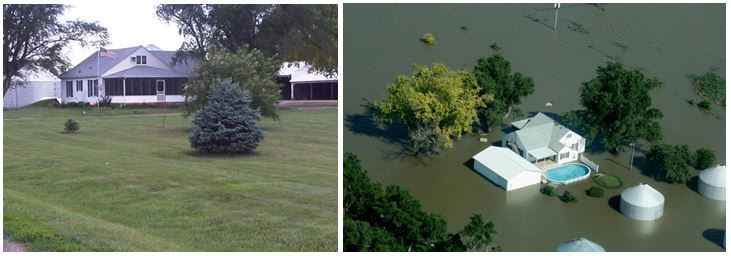Taking the carbon out of Frosted Flakes
 Richard Oswald (pictured here in a grain bin on his farm in Langdon, Missouri) sponsored a petition that has led to Kellogg and General Mills announcing significant commitments on addressing climate change in their supply chains. Photo: Ilene Perlman/Oxfam America
Richard Oswald (pictured here in a grain bin on his farm in Langdon, Missouri) sponsored a petition that has led to Kellogg and General Mills announcing significant commitments on addressing climate change in their supply chains. Photo: Ilene Perlman/Oxfam America
Kellogg will require suppliers to measure and publicly disclose agricultural emissions.
Fifth-generation Missouri farmer Richard Oswald’s petition on change.org garnered over 115,000 signatories in just two and a half months. Why was his call to Kellogg and General Mills to reduce emissions in their agricultural supply chains so successful?

Perhaps it was because Oswald himself has seen first-hand how climate has impacted his family farm and home state of Missouri when record floods hit in 2011. The floods washed out any potential harvest of corn, a crop he grows that is sold in the commercial market to companies like Kellogg and General Mills.
The signatories to Oswald’s petition made up the more than 230,000 “Behind the Brands” supporters that have called on both Kellogg and General Mills to do more to stave off climate change, so that farmers around the world can continue to feed their families and rely on their farming livelihoods.
Just a couple of weeks ago, General Mills made sweeping commitments to reducing emissions in its supply chains that went beyond what any food and beverage company has done prior.
Now Kellogg is upping the ante with a new commitment on climate change announced today.
Like General Mills, Kellogg will join the advocacy coalition, Business for Innovative Climate and Energy Policy (BICEP), a group of businesses committed to working with policy makers to pass meaningful energy and climate legislation and sign on to its Climate Declaration. And like General Mills, Kellogg will set a total supply chain emissions reduction target in 2015, which includes upstream agricultural emissions and is consistent with science-based methodology and long-term goals to keep global temperature change below 2°C.
But Kellogg has gone even further. By incorporating their climate and deforestation policies into their supplier code of conduct and expectations, they will require suppliers to measure and publicly disclose their emissions reduction targets. This is significant because at the end of the day, companies will only be able to reduce emissions in their supply chains with engagement and innovation from their suppliers. While General Mills took a huge step forward in their recent commitment, the company did not send as strong of a signal to its suppliers. Kellogg has committed to holding its suppliers accountable when it comes to establishing and implementing their emissions reduction targets.
Kudos to Kellogg for setting its own race to the top among its suppliers in driving innovation. This means we’ll get to enjoy our Frosted Flakes with less carbon.